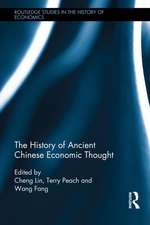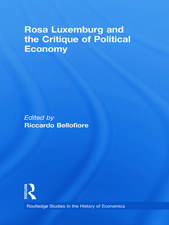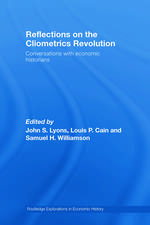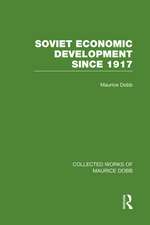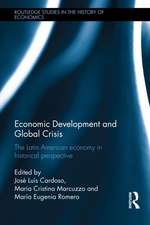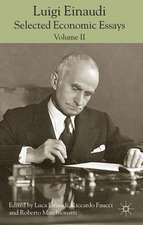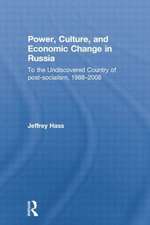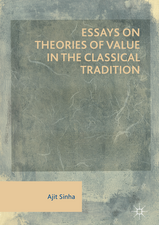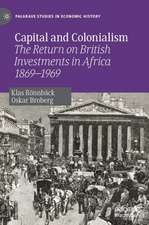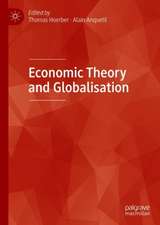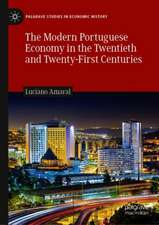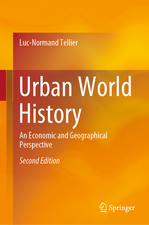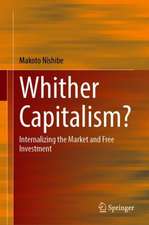The Secrets of Hegemony
Autor Tai-Yoo Kim, Daeryoon Kimen Limba Engleză Hardback – 7 apr 2017
| Toate formatele și edițiile | Preț | Express |
|---|---|---|
| Paperback (1) | 696.35 lei 6-8 săpt. | |
| Springer Nature Singapore – 12 dec 2018 | 696.35 lei 6-8 săpt. | |
| Hardback (1) | 950.03 lei 6-8 săpt. | |
| Springer Nature Singapore – 7 apr 2017 | 950.03 lei 6-8 săpt. |
Preț: 950.03 lei
Preț vechi: 1158.57 lei
-18% Nou
Puncte Express: 1425
Preț estimativ în valută:
181.79€ • 189.43$ • 150.52£
181.79€ • 189.43$ • 150.52£
Carte tipărită la comandă
Livrare economică 03-17 aprilie
Preluare comenzi: 021 569.72.76
Specificații
ISBN-13: 9789811044144
ISBN-10: 9811044147
Pagini: 258
Ilustrații: XXVI, 258 p. 10 illus.
Dimensiuni: 155 x 235 x 18 mm
Greutate: 0.58 kg
Ediția:1st ed. 2017
Editura: Springer Nature Singapore
Colecția Springer
Locul publicării:Singapore, Singapore
ISBN-10: 9811044147
Pagini: 258
Ilustrații: XXVI, 258 p. 10 illus.
Dimensiuni: 155 x 235 x 18 mm
Greutate: 0.58 kg
Ediția:1st ed. 2017
Editura: Springer Nature Singapore
Colecția Springer
Locul publicării:Singapore, Singapore
Cuprins
Introduction.- Chapter 1: Theoretical Premises and Historical Method.- Chapter 2: Early Modern Spain.- Chapter 3: Rise and Decline of the Dutch Economic Supremacy.- Chapter 4: The Perfection of an Expansive Reinvestment System in England.- Chapter 5: The Story of England (cont.).- Chapter 6: The Case of the United States.- Chapter 7: The Story of the U.S. Economy (cont.).
Notă biografică
Tai-Yoo Kim teaches economics at Seoul National University (SNU). Founder of SNU's Technology Management, Economics and Policy Program, Kim has published extensively on energy economics and technology policy and has served as policy consultant and adviser for both Korean companies and the government. Most recently, he served as chief information, science and technology adviser to the president of the Republic of Korea.
Daeryoon Kim is an associate professor of history in the School of Undergaduate Studies at Daegu Gyeongbuk Institute of Science & Technology. His Oxford doctorate examined the political methods and ideas of colonial merchants in London in the period 1763-83, and he has published several articles in both Korean and English on the political economy of Hanoverian Britain.
Textul de pe ultima copertă
This book revisits the historically different paths to economic development that Spain, the Netherlands, Great Britain and the United States followed at different time periods since the early modern period. Addressing the questions of how economic growth came about in these four countries and why sustained economic growth was achieved only by the two latter economic powers - Great Britain and the United States, it clearly highlights the long-term economic impact of the individual economic systems each country had developed. This discussion draws on two important variables in economic systems: whether its primary activity is agriculture, commerce, or manufacturing, and whether its productive system expands or simply reproduces. From this interpretive framework, the book suggests that the existing literature has not yet paid sufficient attention to the enduring impact on a nation’s long-term economic performance of their differing economic systems - simple agricultural reproduction system (Spain), expansive commercial reinvestment system (the Netherlands), and expansive industrial reproduction system (Great Britain and the United States). The book also demonstrates why sustained economic growth was viable only within an expansive industrial reproduction system, and what conditions Great Britain and the United States had to fulfill to create such an economic system in their specific historical contexts. It concludes by reflecting on the policy implications of the findings on current discussions concerning economic development within the global economy.
Caracteristici
Provides a theoretically coherent and empirically rich interpretive framework Helps readers grasp the key determinants of a nation’s economic performance Appeals to public policymakers, as well as academics with an interest in economic history Includes supplementary material: sn.pub/extras

